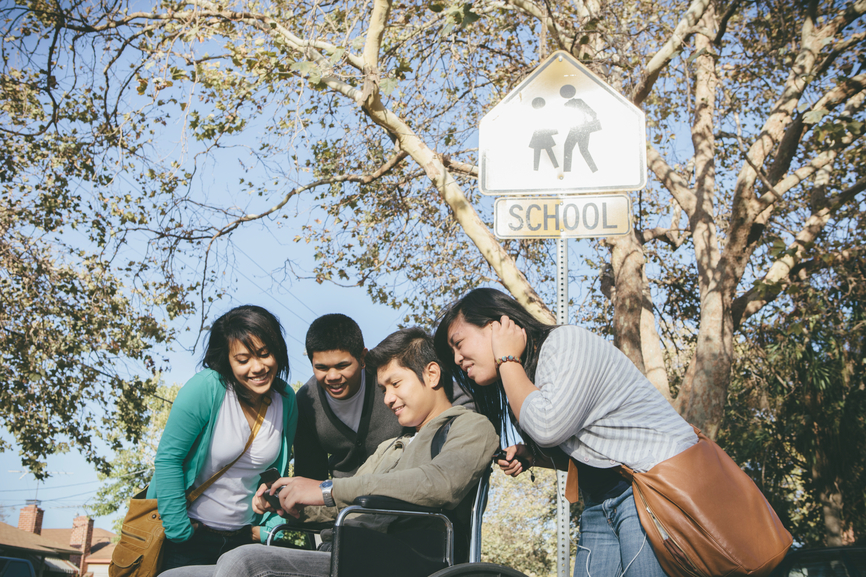My name is Jane and I was born in Chicago. Soon after my birth, doctors realized I had cerebral palsy. My CP resulted in physical and cognitive deficits. I have right arm weakness which prohibits me from doing two-handed tasks. My attention deficits, slower processing speed, and problem-solving skills affect my academic and vocational performance if accommodations are not granted.
For these reasons, the Americans With Disabilities Act (ADA) has played a crucial role in my education. Because of the ADA, I was able to graduate from high school, college, and graduate school. Having my CP-related deficits did not make excelling easy. I had to work twice as hard as the typical student without a learning disability and I had to be pretty resourceful to get around my one-handedness in school and graduate training.
The ADA insured that reasonable accommodations would be made during my entire schooling. As I write, you will see what is meant by “reasonable accommodations.” For me, it began when I began experiencing academic difficulties in fourth grade. After receiving a neuropsychological evaluation that revealed my deficits, I started receiving accommodations. The accommodations included receiving extended time on exams and projects, getting the help of a peer note-taker, and getting access to class material prior to the start of each semester. I needed extended time because my processing of information was slow, a peer note-taker because I was a slow writer, and access to class material would allow me to study in the summer so I would not lag behind the class because of my slow reading. The accommodations leveled the playing field for me so that I could demonstrate my intelligence and not be hindered by slow processing and reading.




